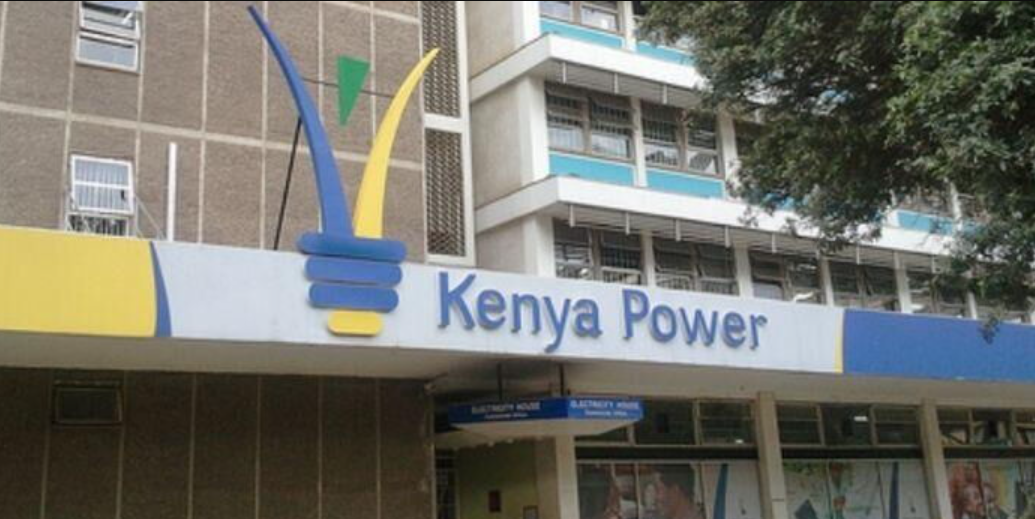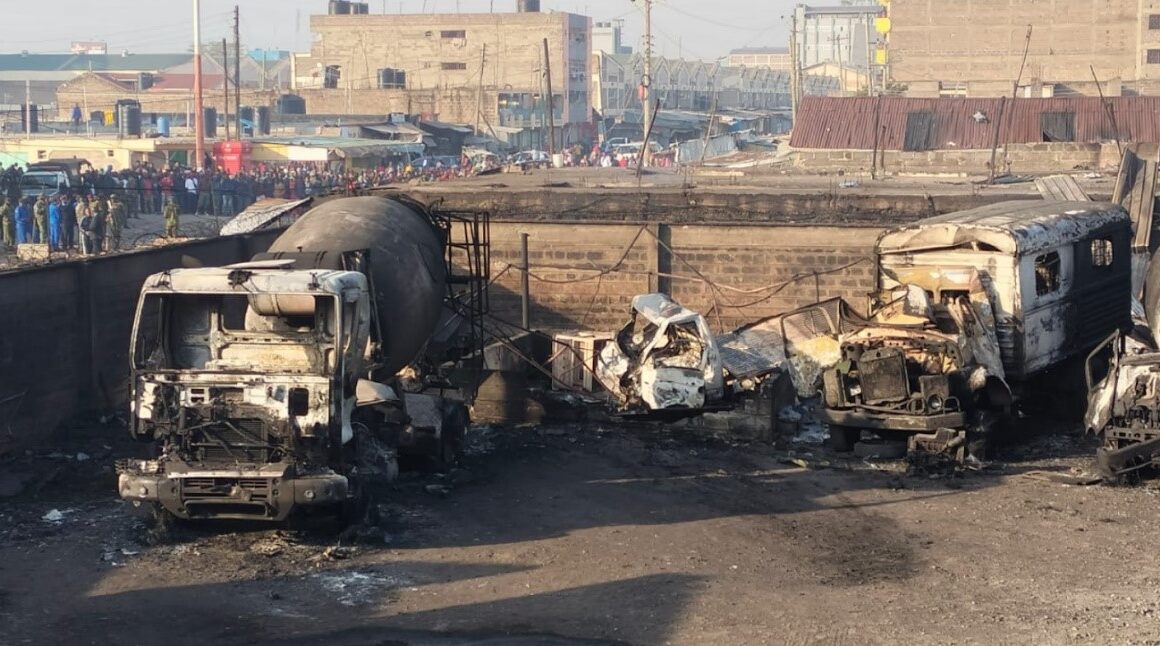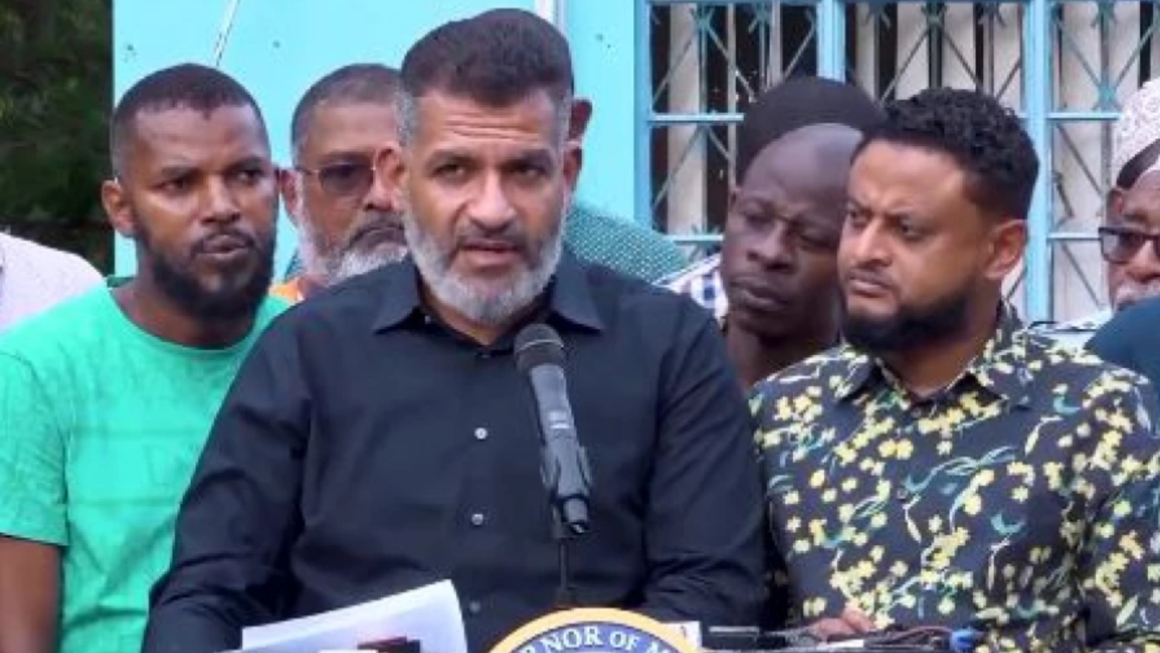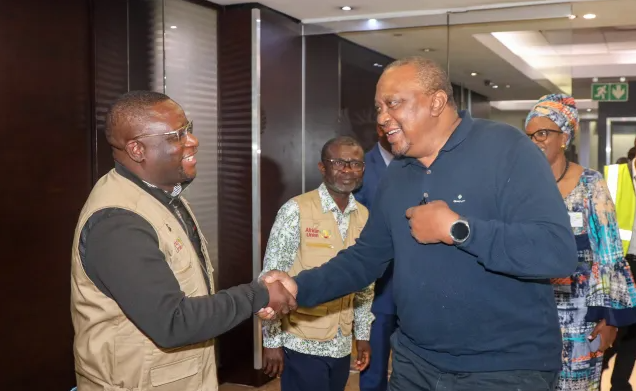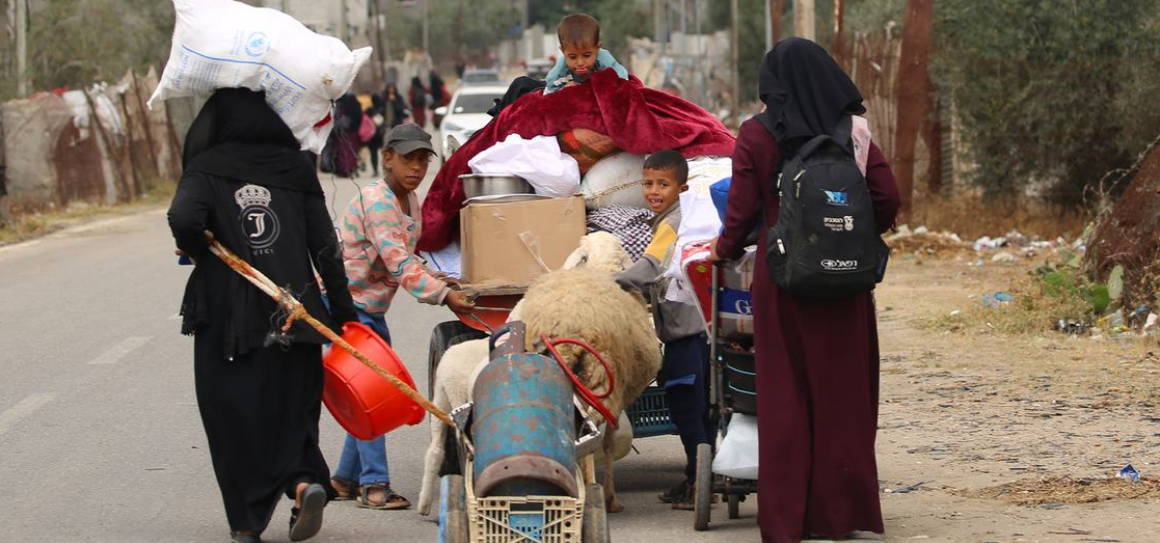Kenya Power and Lighting Company announced on Tuesday that the Prepaid vending system will be interrupted for 24 hours. The interruptions will take effect from Sunday at 10 p.m. on June 2nd to Monday at 10 p.m. on June 3rd. During this period, customers who relied on prepaid systems, also known as tokens, will not be able to make any payments to Kenya Power. Kenya Power customers will not buy tokens from Mpesa Paybill numbers, Kenya Power offices, Airtel money, and other banking channels. Part of the statement delivered by Kenya Power reads; During this 24-hour period, customers will be unable to purchase electricity tokens from all vending points, including Kenya Power offices, M-PESA Paybill number 888880, Airtel Money, and banking channels. The company will initiate this interruption to facilitate a planned system network upgrade that will improve its efficiency and reliability. To avoid inconveniences during the 24 hours, Kenya Power advises customers who depend on prepaid tokens to stock up enough before the said dates. This directive is likely to affect over 6.8 million prepaid customers that the company currently serves. The utility company had earlier indicated that it serves over 2.1 million postpaid customers throughout the country. These customers help the company earn over Ksh120 billion, which is 63 percent of its total revenue. Kenya Power Prepaid tokens kit Despite the huge earnings, KPLC announced that it intended to migrate all its postpaid customers to the prepaid system. The majority of the customers using the postpaid option prefer it over the prepaid and will likely suffer a huge hit when the migration happens. The scheduled maintenance could also be a response to the technical glitch that occurred in January, causing a 15-hour power interruption. The company blamed the glitch on the mobile money transfer system and stated that it affected customers who rely on the prepaid system. The interruption is part of moves by Kenya Power to ensure the efficiency and reliability of its power distribution system. The company aims to implement important improvements that it believes will benefit the customer. The move is also part of the company’s efforts to streamline operations and modernize its infrastructure. The aim is to meet customers’ ever-evolving needs while ensuring the efficiency and reliability of their services. While customers are urged to ensure they have enough tokens before the date of the upgrade, the company assures the public of continuous updates. The company also assures its customers of minimal interruptions and a smooth transition through effective communication.
Mradi Gas Explosion Victims Sue State in Demand for Compensation
A section of victims in the Mradi area gas explosion has gone to court to sue the state for negligence. The victims want compensation for injuries, loss of life, and environmental degradation from several state agencies. The gas explosion that occurred in Embakasi East Constituency on February 2, 2024, caused severe burns, property damage, and loss of lives. Up to 12 people lost their lives in the explosion, with scores suffering injuries and property damage. The victims (Newton Mwaka, Samuel Owino, Kennedy Kyalo, Kennedy Otieno, Geoffrey Obegi, and Alvin Mwendwa), who are residents of the Mradi area in Embakasi, now demand compensation for all the damages. The Victims have sued several parties, including the cabinet secretary for Energy and Petroleum, David Chirchir and the cabinet secretary for Environment, Climate Change, and Forestry, Soipan Tuya. They’re also suing the County Government of Nairobi, Attorney General Justin Muturi, and the owner of the gas tanker, Mwangi Nguyo. According to the petitioners, NEMA admitted guilt when it publicly declared that its officials irregularly issued the plant an environmental impact assessment license. Embakasi gas explosion fire While EPRA stated that they rejected the gas plant’s application for construction, they still failed to ensure that the rejection was enforced and that no plant was constructed. This also puts them on the victims’ list of negligent parties. EPRA and The Cabinet Secretary for Energy failed to inform NEMA, the Ministry of Environment, and other state agencies of the rejection of the application by Derdlos Petroleum Ltd. Pearlyne Omamo of ADRA LLP Advocates filed the petition on behalf of the six victims before Justice Chacha Mwita. The victims claim that the parties violated their Fundamental Rights and Freedoms. They seek compensation for the damage to their health, loss of lives, and environmental damage. In his ruling, Justice Mwita ordered that the relevant agencies be served immediately and a response be filed within 14 days. The petitioners will then have another 14 days after the filing of the response to serve a supplementary affidavit. Even though the owner of the gas refilling company, Derrick Kimathi, has been released on bail after being arrested, the victims are yet to get justice. The victims are left to fend for themselves after losing their loved ones, suffering severe burn injuries, and losing their sources of livelihood. Their only hope is that the court will give an order for compensation for the damages they incurred.
No More Muguka in Mombasa as Nassir Takes Action
The governor of Mombasa County, H. E Abdullswamad Sherrif Nassir, has banned the sale, consumption, and supply of muguka. The governor issued orders to block all motor vehicles carrying khat from entering the county. He also directs the closure of all outlets including retail and wholesale selling and distributing muguka in Mombasa. According to Nassir, muguka traders have disregarded laws safeguarding the sale of this drug to minors. The county executive claims that some traders even sell khat to minors at a cheap cost, exposing them to health risks. Nassir says that they have tried to regulate the use of muguka to ensure users and the larger community can coexist but the traders have yet to follow the regulations. The move comes a week after the county banned the sale of Miraa and muguka near schools. The governor confirms that he initiated the ban after legal consultation, which found the move to be in order. The consultation with the National Authority for the Campaign for Drug Abuse (Nacada) gave a green light to the move to ban muguka in the county. In his speech at Port Reitz Hospital, the governor highlights the health effects of muguka among consumers. The basis is that the levels of cathine and cathinone in muguka is very high level. An average of about 20 leaves is enough to make someone have toxic imaginations. Imagine a child consuming this during school hours, Nassir. His statement adds that the consumption of this drug is likely to cause mental health issues and disability. A person chewing Muguka Leads to devastating health, social, economic and environmental consequences and places burdens on minors, families, the poor and county health systems, the statement reads. The Ban on muguka is a huge relief to some MCAs in the county who have been pushing for it since 2018. The Mombasa Woman Representative, Zamzam Mohamed Chimba, is also among politicians who had vowed to have muguka banned and Miraa strictly regulated to protect the children and youth in the county. Other bodies including Mombasa clergy and Muslim scholars have also been at the forefront of pushing for the ban of this stimulant. Muguka’s ban in Mombasa is no doubt a big blow to traders who have been pushing for better terms for the sale of the drug. The traders went ahead to sue the county governor for what they termed as ‘unfair’ tax laws. The court, however, declined to suspend the levies imposed on them.
Kenyan Refugee Becomes the First Black Mayor in Northern Ireland
Lilian Seenoi-Barr who is 42 years old was born in Kenya and grew up in Narok in a family of 14 siblings their father was a doctor while their mother ran a business. She is a Maasai and in her early years she recalled having to fight against early marriage and female genital mutilation What is FGM? | End FGM. Lilian moved to Northern Ireland in 2010 as a refugee where she married a local Irish Man, and has a son, who is autistic. She was elected to the Social Democratic and Labour Party (SDLP) which she first ran as a counselor and lost in 2019 and was later co-opted in 2021 and held her seat in the 2023 local elections. Her party nominated her as a mayor under a rotating system with other parties in Northern Ireland’s second city. Lilian and her husband Before she joined politics Lilian founded and ran an advocacy network, North West Migrants Forum, where she remains the director and it has since grown to 6 members of staff and more than 50 volunteers. Her election as a mayor has been welcomed by many people and she has been viewed as a symbol of progressive politics, and tolerance of cultural diversity. However, it has also created significant backlash and racism against immigrants and refugees by her opponents who claim Northern Ireland is being taken over by foreigners and asylum seekers. Racist groups in America such as the conspiracy theorist Alex Jones have used Lilian’s success to spread hate and conspiracy towards people of colour in Northern Ireland leaving many afraid of potential racist attacks.
Election Preparations: Uhuru Kenyatta in South Africa
Uhuru Kenyatta, the former president of Kenya, is currently in South Africa to oversee the country’s upcoming general elections on May 29, 2024. In a statement released on Sunday, May 26 2024, Uhuru noted that he was greeted in Johannesburg by officials from the African Union (AU) and High Commissioner Jane Ndurumo. Uhuru arrived in Johannesburg on Saturday evening, ahead of the elections which are scheduled to take place on Wednesday, May 29, 2024. Kenyatta, who was nominated by the African Union Commission (AUC) will guide the African Union Election Observation Mission (AUEOM) in overseeing the elections. Moussa Faki Mahamat, the Chairperson of the African Union Commission, has agreed to send a short-term AUEOM to South Africa to assess and document the conduct of this election, following invitations extended by the South African government and the Independent Electoral Commission (IEC) of South Africa. The AU stated that the mission will interact with state authorities, the Independent Electoral Commission, political parties, the media, civil society organizations, and international representatives during the upcoming 2024 elections. Made up of 60 short-term observers (STOs), the AUEOM consists of officials from election management bodies, ambassadors recognized by the African Union, and individuals from African civil society organizations. It also consists of specialists in human rights, gender matters, African election experts, and media affairs, alongside representatives from youth groups. people queuing to vote Observers come from 24 nations which include Angola, Benin, Botswana, Burundi, Cameroon, Congo (Kinshasa), Egypt, Ethiopia, Eswatini, Gambia, Ghana, Kenya, Lesotho, Mauritius, Morocco, Mozambique, Namibia, Nigeria, South Sudan, Togo, Tunisia, Uganda, Zambia, and Zimbabwe. In a statement from the office of the former president, it was mentioned that this appointment represents the continent’s shared efforts to improve the clarity, reliability, and fairness of voting systems across its nations. Election monitoring is very important in protecting voting system integrity by making recommendations and unbiased judgments. The AUEOM will evaluate using the laws guiding elections in South Africa and the OAU/AU Declaration on Democratic Election Principles, the rules from the African Charter on Democracy, Elections and Governance (ACDEG), and the International Declaration of Principles (DoP) for International Election Observation, among other guidelines. The Mission will collaborate with government representatives, the Independent Electoral Commission, political organizations, journalists, grassroots groups, and international delegates. The Mission will also engage with other election monitoring teams sent to oversee the 2024 General Elections in South Africa. The Mission will announce its early findings and advice on the management of the elections on May 31, 2024, in a press event held in Johannesburg, South Africa. Kenyans reacted to Uhuru’s South Africa visit and wondered why every leader was leaving the country. The curiosity of Kenyans comes after President William Ruto and Azimio leader, Raila Odinga, were also on a visit earlier this week. Ruto was on a state visit to the U.S., where he met with President Joe Bidden and First Lady, Jill Biden. Together, they discussed how to strengthen bilateral relations. They focused on security, trade, technology, economic development, and climate change. Ruto was accompanied by Kenyan comedians like Eddie Butita, cabinet secretaries, governors, and the First Lady, Racheal Ruto. Ruto came back to the country on Friday, May 24, 2024. On the other hand, Azimio Leader, Raila Odinga, left for the UK on Thursday, May 24, 2024. Raila was going to give a lecture at the University of Oxford, where he was to tackle the theme of “Forging Africa’s Future: An Expedition of Resilience and Renewal.” Odinga, who was also accompanied by Sifuna, was also set to attend an inauguration ceremony of Lilian Seenoi. Seenoi is a Kenyan politician based in Ireland and was elected as the new mayor of Derry.
The Ministry Of Health (MOH) Experiences Vaccine Shortage in the Country
Harry Kimtai, medical services PS, has stated that the country is facing a vaccine crisis. Kimtai pointed out that there’s currently a scarcity of vital vaccines, with less than a two-month supply available across the country for common vaccines like the BCG Vaccine, Oral Polio Vaccine, and Measles Rubella Vaccine. The PS admitted that the low vaccine supply is a danger to children and vulnerable groups as they are likely to experience possible outbreaks. Yet, he blamed the national treasury, linking the scarcity to outstanding payments totaling Ksh.3.6 billion to suppliers. Parents of the affected counties now have to seek the vaccination services in their neighbours. Siaya, Baringo, Elgeyo Marakwet, Nyamira, Kilifi, and Migori are part of the group of ten most affected counties. On Tuesday, the national treasury issued Ksh.1 billion to MOH and also added Ksh 1 billion for the vaccines. However, the current ongoing fund facility, overseen by UNICEF and the Global Alliance for Vaccines and Immunization, requires another 1.6 billion Ksh to restart vaccine distribution. Kimtai mentioned that they have an ongoing fund which if it empties, the supply abruptly stops. He also said that they are lacking 750 million Ksh, which they need to pay for to fix the vaccine shortage. Kimtai predicted that the vaccine shortfall crisis is likely to intensify unless the required funds are paid by early June. He stated that upon settling the situation vaccines are expected to commence entering the country. “We are currently struggling to pay for vaccines. Our bill now stands at 3.6 billion Ksh, plus an extra 750 million. We have to give UNICEF and the Global Alliance of Vaccine Immunization 2 billion Ksh. Even after that, we’ll still owe 1.6 billion Ksh, a payment we can’t avoid,” Kimtai said. Kimtai, the medical services PS The vaccine shortage in the country is due to reduction of the vaccine budget by 750 million in the financial year 2023/2024. The 2024/2025 finance bill, which has already faced criticism from Okiya Omtatah, is expected to allocate more funds to the immunization programmes. “We need an extra 750 million Ksh to cover our vaccine needs. At first, we aimed for 1.2 billion Ksh, but we realized we needed another 750 million. Thereafter, there was a reduction of 750 million Ksh in the budget,” said the Medical Services PS. Despite the shortage, MOH reassured that there are strategies already put in place to ensure no child misses on the vaccines. Strategies such as redistributing vaccines to demand areas, fast tracking of paid orders by UNICEF and convincing the National Treasury to add the funds for the immunization programmes in this financial year. A weak immune system which is caused by lack of vaccines exposes the children to future outbreaks. This can lead to respiratory disorders, death and paralysis especially if one fails to receive the Polio vaccine. Parents are encouraged to follow nutritional advice to boost their children’s immunity. President William Ruto, who is on a state visit to the U.S., is yet to address the vaccine shortage situation in the country.
Hamas Launches Rockets Against Israel for the First Time in Months
Palestinian Jihadi group Hamas on Sunday said that it had fired several rocket attacks on Tel Aviv, one of the biggest cities in Israel. This is Hama’s first attack against Israel in Months, apparently meant to be a warning as Benjamin Netanyahu’s armed forces advance against the group’s remaining stronghold in Gaza. According to media reports, air sirens sounded in Tel Aviv and across the middle territories of Israel. The Israel Defence Forces (IDF) said that Hamas fired at least eight rockets from the city of Rafah. Since Israel’s massive military offensive in Gaza started eight months ago, Hamas has found it hard to fire rockets against the country. Israel was able to nullify most of the rockets in the Sunday attack. There were however reports that two women suffered minor injuries while rushing to a bomb shelter. A few flights from and into the Ben Gurion airport were either delayed or canceled. In a statement on its Telegram account, Hamas’ military wing that it launched the rockets in response to Israel massacring Palestinian civilians. Israel conducted airstrikes in Rafah on Sunday, killing at least five civilians, according to emergency workers. Responding on X after the Hamas rocket attacks, Israel’s far-right national security minister Itamar Ben-Gvir said that it is time for the country to invade Rafah with the full might of its military. Another member of Benjamin Netanyahu’s government, Benny Gantz said that the rocket attacks from Rafah are proof that the Israeli armed forces must conduct operations wherever Hamas is. There have been reports that Hamas had managed to abduct an IDF soldier. The Israeli government however rubbished those claims. On Saturday, Hamas published a video that appeared to depict its fighters dragging an unconscious Israeli soldier through one of their tunnels. Israeli Military Despite a ruling by the International Court of Justice, Israel has gone ahead with a military operation in Rafah. In the ruling, the ICJ ordered Israel to halt the planned offensive, stating that it would make worse an already pathetic humanitarian crisis that the Palestinians are having to endure. Almost one year since the Israeli offensive in Gaza began, Rafah remains the only place that has not seen ground fighting between the opposing sides. Many Palestinians had sought shelter there when Israel began its war. Defying the ICJ and pressure from the international community, Israel has repeatedly said that a ground military campaign in Rafah is vital in its efforts to completely defeat Hamas. Israel believes that the militant group’s top leadership and four armed battalions are seeking shelter in Rafah. According to Israel, the remaining Hamas fighters in Rafah are using Israeli hostages as their human shields. On October 7, Hamas launched a surprise attack in Gaza. An estimated 1200 people lost their lives. Hamas took 250 Israeli civilians as hostages. Israel responded with a massive military attack in Gaza, where over 3,6000 people, most of them civilians, have been killed. Attempts at ending the war, or at least getting a truce between Israel and Hamas, have all failed. The last round of talks in Qatar with the United States acting as a mediator, ended after Israel launched their operation in Rafah. Israeli media reported that US officials on Friday met Qatari and Israeli mediators in Paris, in an attempt to get the negotiations back on track. Hamas has however denied these reports, saying that a new date for discussions has not yet been decided.
Atheists in Kenya Insist on Inclusion at Parliament’s Prayer Gathering
The Atheists society in Kenya, led by their chairperson, Harrison Mumia, requested to be invited to the upcoming annual national breakfast. Earlier on Tuesday, April 30, 2024, Moses Wetangula, the Speaker of the National Assembly, shared key info about the occasion. He said the event is set for Safari Park on Thursday, May 30, 2024. Wetangula also announced the theme for this year, calling it “hope.” He stressed that the prayer gathering is for everyone, regardless of their religious affiliation, and it will focus on the importance of coming together as a nation. The Annual National Breakfast Prayer will be led by President Ruto, who has just concluded his U.S. visit. Yet, the Atheists Society of Kenya sensed they were excluded in this national affair. They chose to pen a letter to Samuel Chepkonga, the Ainabkoi MP and Chairperson of the Prayer Breakfast Group, seeking participation in the event. In their communication through a letter, they stated their primary objective as bifold: to bolster the divide between state affairs and religious institutions. They stressed their dedication to offering support to those who share their views, letting them know they’re not alone in a country where religion is widespread. Harrison Mumia emphasized that they should be part of the prayer gathering since they are one of the taxpayers in the nation. The event is funded by taxpayers’ money. Mumia mentioned that they wouldn’t go if it was a church gathering. He stressed that the prayer breakfast must solely aim to bring Kenyans together, including those who don’t believe in God. A photo of a past National Prayer Day Mumia warned that if Chepkonga and his team don’t include them, they’ll take legal steps. They declared they would take legal actions, alleging that the government is unfairly using taxpayers’ money to benefit a privileged few, leaving out atheists. He stressed the importance of their attendance at the event, despite their decision not to pray. Chepkonga and his group of fellow atheists are expecting to hear back from the government by next week. The Atheists in Kenya Society was founded on February 17, 2016 in Nairobi, Kenya. Its headquarters are in Summit House, Nairobi with Harrison Mumia acting as the founder and president. The society has faced a lot of challenges since its establishment. At one time, Mumia reached out to Kenyans, asking for their help in covering his 1800 rent. He underlined the need for financial resources for their office operations to proceed smoothly. However, Kenyans ridiculed him and advised the society to seek God’s guidance.
The UK and the US to Back Israel Against ICJ Ruling
After initially saying they are opposed to Israel’s continued offensive in Rafah, the United States and the United Kingdom now seem to have changed their stance. The two world powers have said they will oppose the International Court of Justice’s order asking Israel to quit its military operation in Rafah immediately. Initially, the US and the UK had said they would not back Israel on its plan to launch a major ground military offensive in Rafah unless there was an effective plan to shield civilians and prevent casualties. But over time, Israel seems to have convinced its two main allies to change their definition of what constitutes a major military operation. Last week, the UK deputy for foreign affairs, Andrew Mitchell told the country’s parliament that Prime Minister Rishi Sunak’s government would only support a military campaign in Rafah if it meets all the international humanitarian laws. Later that week, the deputy foreign secretary informed the House Business Committee that the significant military operation had not yet begun. Despite his claims, an estimated 800,000 people have already vacated the area. This number includes some 400,000 Palestinians that the Israeli armed forces had warned to vacate. Asked about the huge number of people who have already escaped the Israeli offensive in Rafah, Mitchell said that the UK government was trying to help them with aid. Pressed on whether Israel had broken any International Humanitarian Laws in the offensive, he claimed that the fact 800,000 people have chosen to leave would mean that the UK and the US would not change their assessment of the situation on the ground. Referencing the ruling made by the ICJ, Labor MP Andy McDonald asked the Deputy Secretary what choice the fleeing Palestinians were making to abandon their home and whether they fled out of their own free will. Tents Housing Palestinian Refugees To this, the government official quipped that the citizens of Rafah left their homes as a “result of the circumstances.” Queried on whether he believes Israel has the intent to faithfully follow international humanitarian laws, Mitchell said that what he believes does not matter. He added that what is important is the legal process behind the situation. Jake Sullivan, the United States national security adviser, took a different approach to explain the changed stance on Israel’s offensive against Palestinians. Briefing the press on Wednesday, the US official said that Israeli officials had briefed him on refinements on the Rafah offensive. Sullivan said that the improved plan would help Israel achieve its objectives while trying to avoid civilian casualties. The White House official added that there was no foolproof formula to decide which plan for an offensive was more acceptable. He also refused to comment on the living conditions the fleeing Palestinians are currently having to endure. David Cameron, the UK Foreign Secretary said that while he has seen some progress in humanitarian relief efforts, he is putting pressure on Israel to improve the situation of the Palestinian refugees. Israel claims that the offensive in Rafah will annihilate the remaining Hamas fighting units. According to Israeli officials, only four remain since their war in Gaza started.


